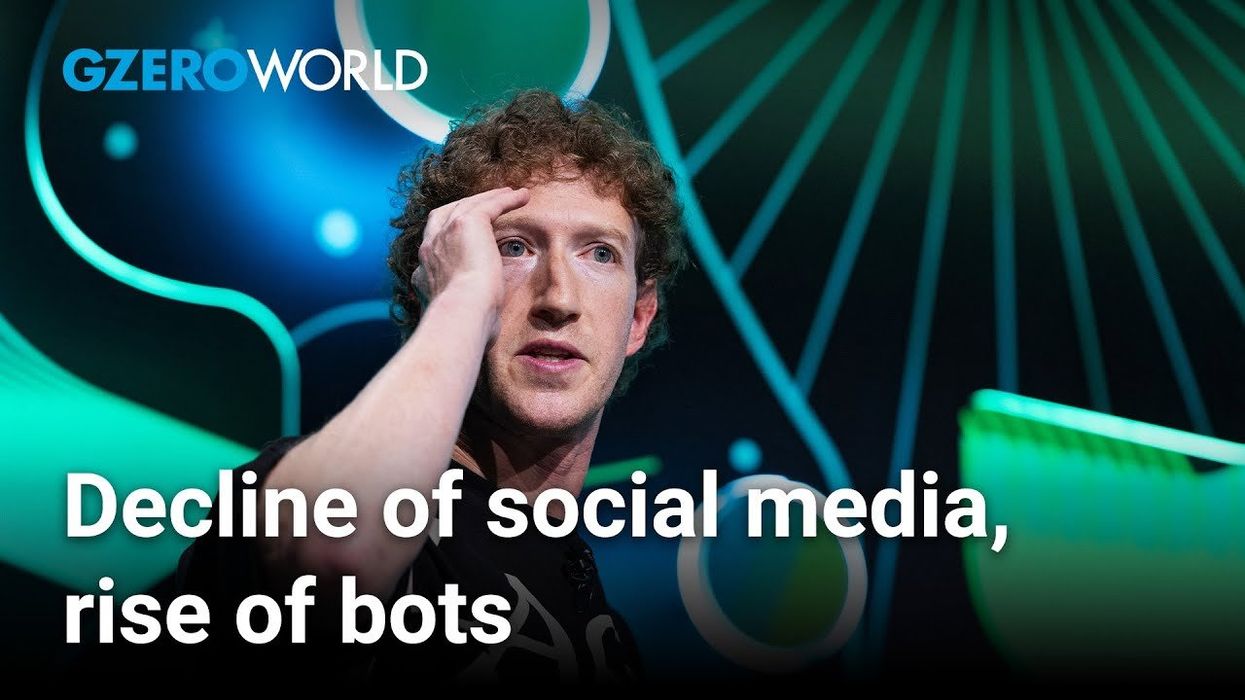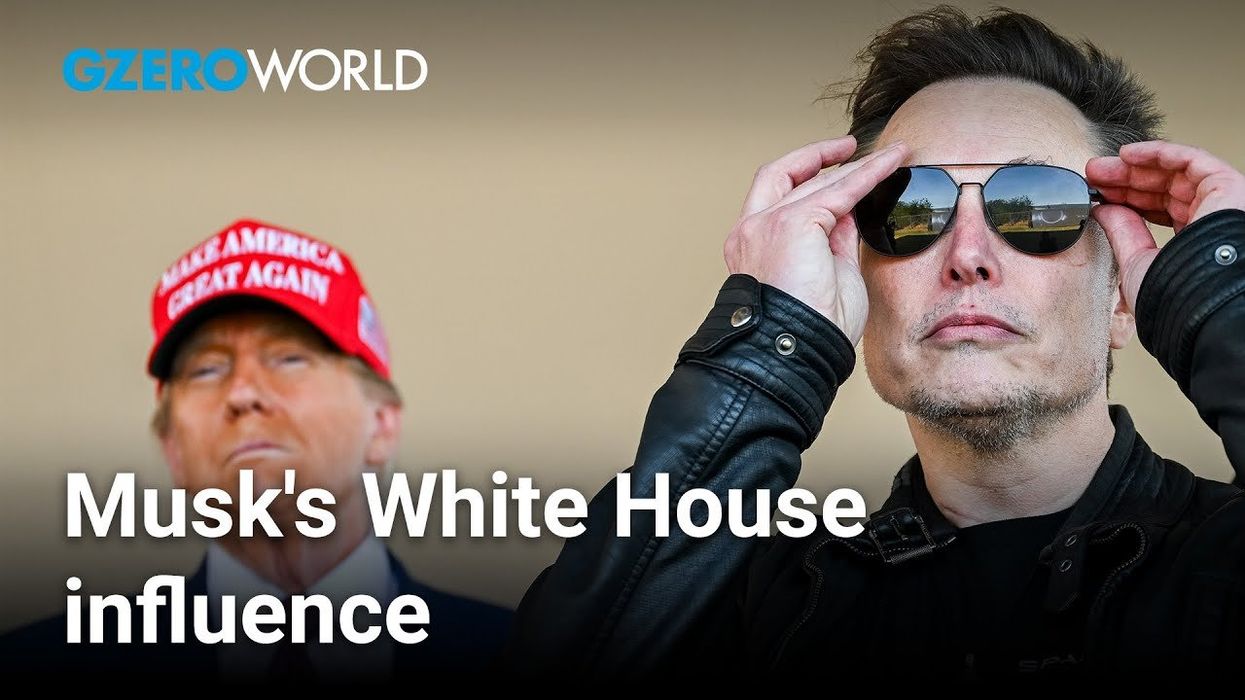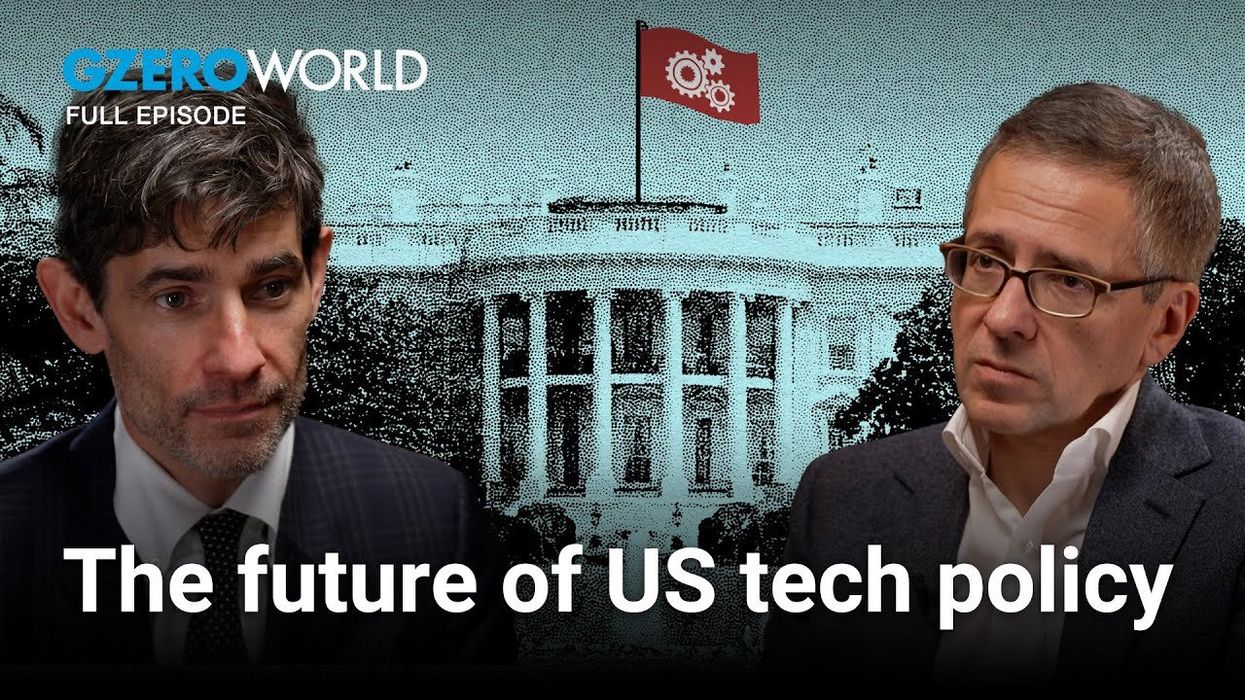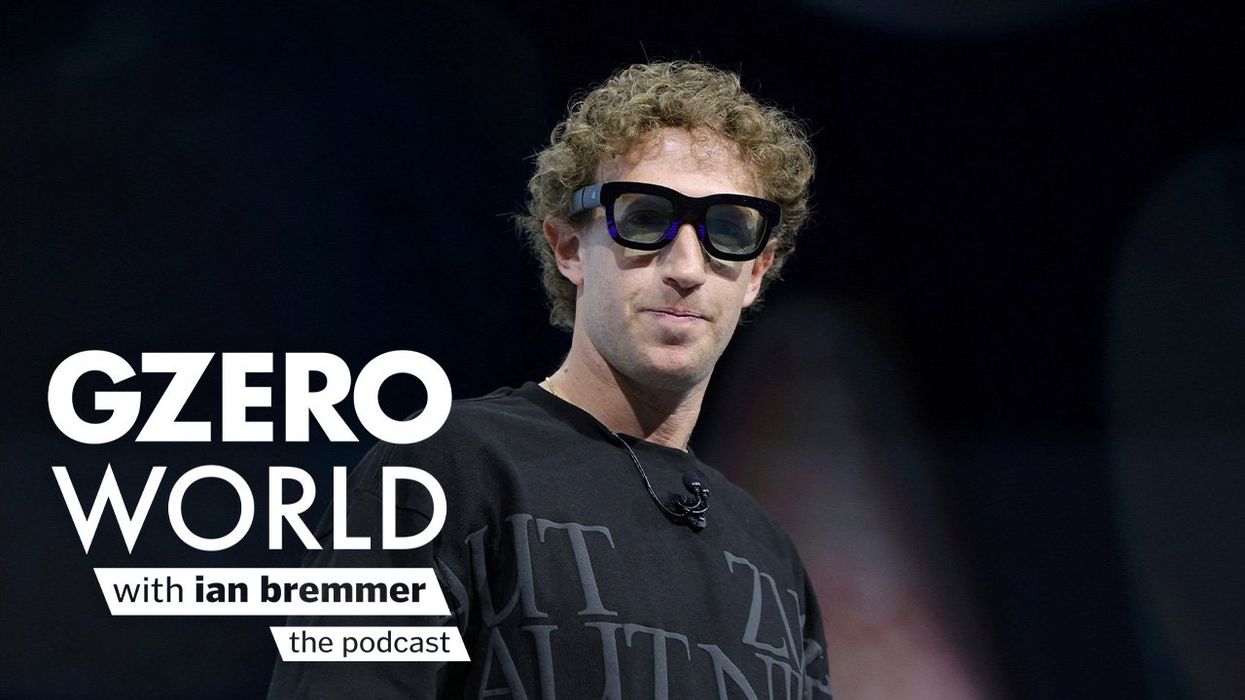GZERO World with Ian Bremmer Podcast
The human cost of AI, with Geoffrey Hinton
Geoffrey Hinton, the ‘Godfather of AI,’ joins Ian Bremmer on the GZERO World podcast to talk about how the technology he helped build could transform our lives… and also threaten our very survival.
Dec 06, 2025










